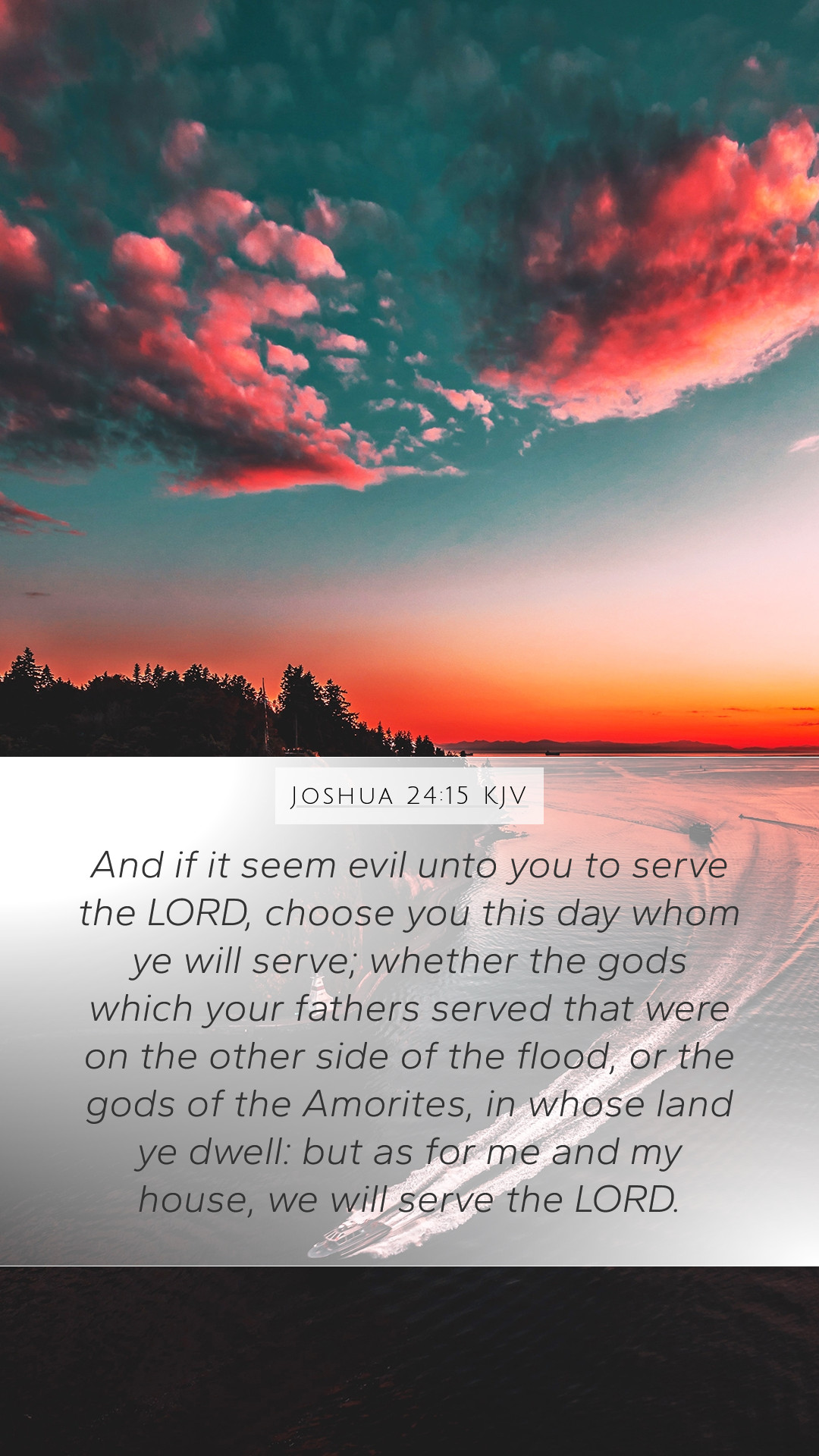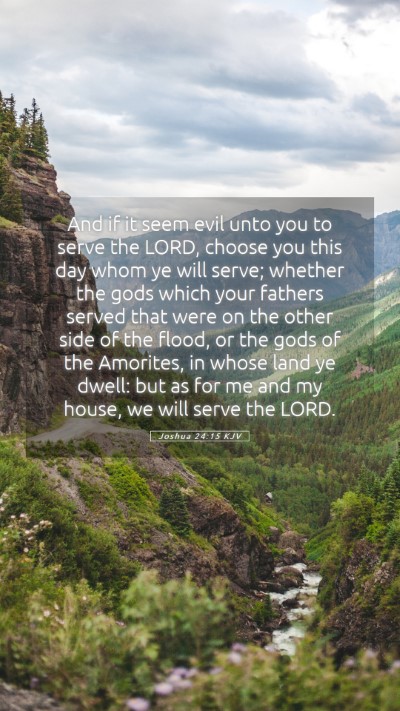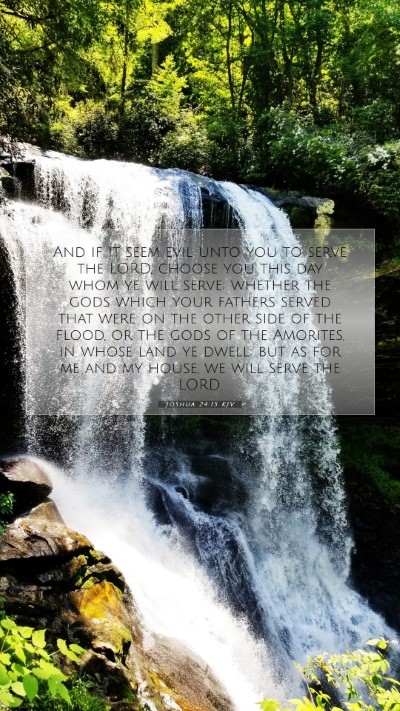Understanding Joshua 24:15
In Joshua 24:15, we encounter a pivotal moment in the narrative of the Israelites as they are reminded of their covenant with God. This verse is rich in meaning and significance, drawing attention to the necessity of choice and commitment in one's relationship with God.
Verse Text
"And if it seem evil unto you to serve the Lord, choose you this day whom ye will serve; whether the gods which your fathers served that were on the other side of the flood, or the gods of the Amorites, in whose land ye dwell: but as for me and my house, we will serve the Lord." (Joshua 24:15 KJV)
Key Themes from Public Domain Commentaries
- The Call to Choose: This verse emphasizes the importance of making a conscious choice regarding whom to serve. As Matthew Henry notes, Joshua urges the people to deliberate on their commitment and reminds them that indecision equates to a decision against God.
- Historical Context: Albert Barnes highlights the historical context of the verse, noting that Joshua confronts the people with their past decisions and the worship of foreign gods, setting the stage for a commitment to the Lord.
- Personal Commitment: Adam Clarke emphasizes Joshua's personal declaration of faith, as he not only speaks for himself but also includes his household in the commitment to serve God, illustrating the influence of familial leadership in faith.
Significance of the Verse
This scripture serves as a powerful reminder that faith is a deliberate choice. The Israelites faced the temptation of returning to their ancestral worship practices or conforming to the surrounding cultures of the Amorites. This resonates with the common theme in Scripture that requires believers to position themselves firmly in allegiance to God.
Understanding the Call to Action
Joshua's challenge is not merely rhetorical; it calls for action. Throughout the Bible, there are instances where God calls His people to choose Him over other gods, a reflection of His desire for an authentic relationship with humanity.
Analysis of Serving Different 'Gods'
The gods mentioned refer to the idols worshiped by the ancestors and surrounding nations, which represent potential distractions and diversions from true worship. According to Clarke, Joshua's position reinforces the exclusive nature of service to God, a theme consistent with the First Commandment.
Application in Daily Life
For contemporary readers, Joshua 24:15 encourages introspection about personal allegiances. The question of whom we serve is relevant today, as various influences vie for our devotion.
Importance for Bible Study Groups
This verse is an excellent topic for bible study groups seeking to explore themes of commitment, choice, and leadership in faith. It invites participants to reflect on their commitments in the light of contemporary challenges and cultural pressures.
Using Bible Study Tools for Deeper Understanding
Engaging with various bible study tools, such as commentaries and historical context resources, can help unpack the complexities of this verse. Online Bible study platforms can facilitate discussions and enrich understanding.
Cross References
- Exodus 20:3: "Thou shalt have no other gods before me."
- 1 Kings 18:21: "And Elijah came unto all the people, and said, How long halt ye between two opinions?"
- Psalm 119:30: "I have chosen the way of truth: thy judgments have I laid before me."
Conclusion
Joshua 24:15 remains a powerful declaration of faith and a challenge for all believers to evaluate their commitments in life. As we study and interpret this verse, it serves as a timeless reminder of the need for intentional decision-making in our spiritual journeys.
Final Thoughts
By understanding Scripture in its historical and cultural contexts, we can apply its truth to our lives today, ensuring that we, like Joshua, can boldly declare our choice to serve the Lord.


